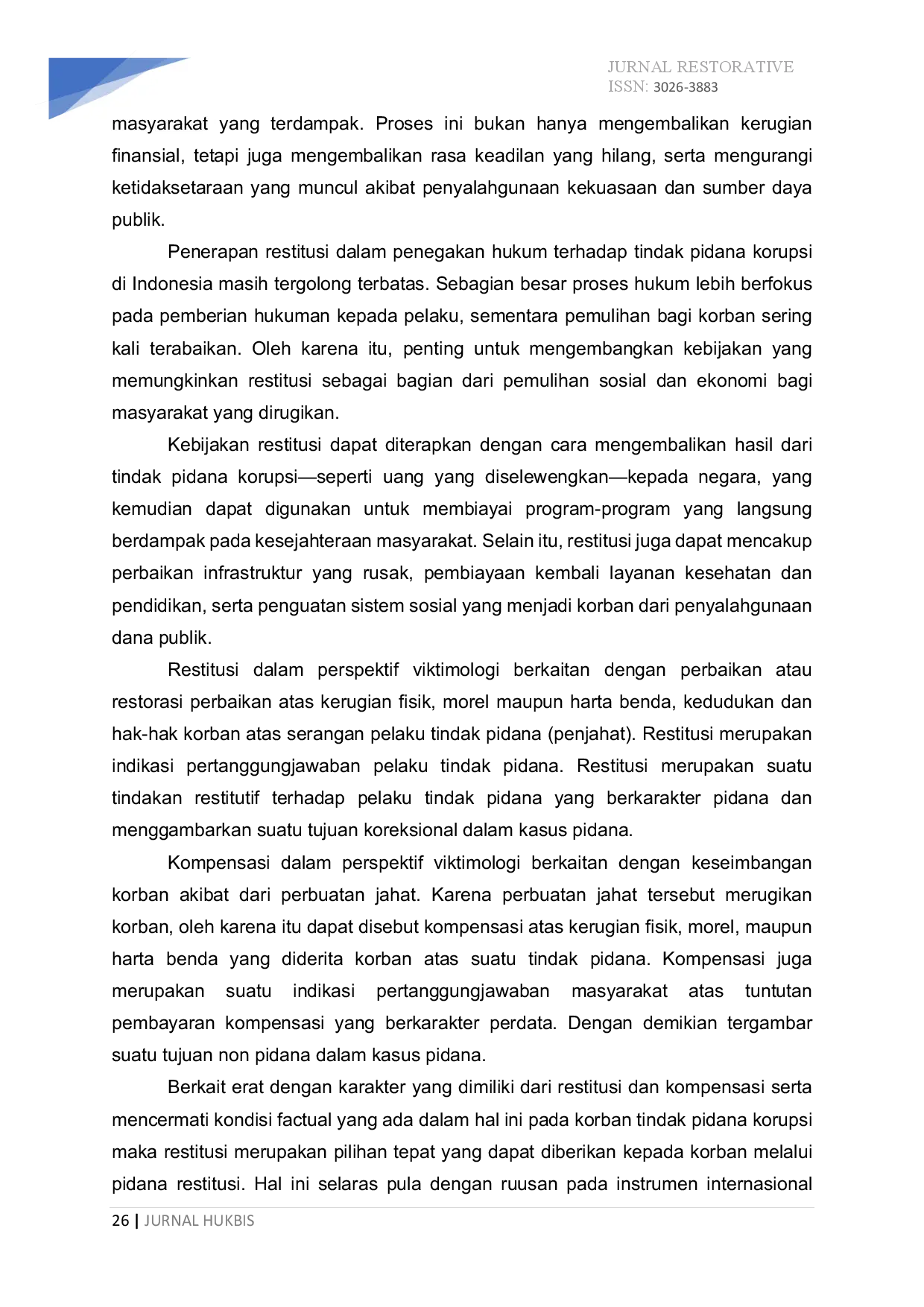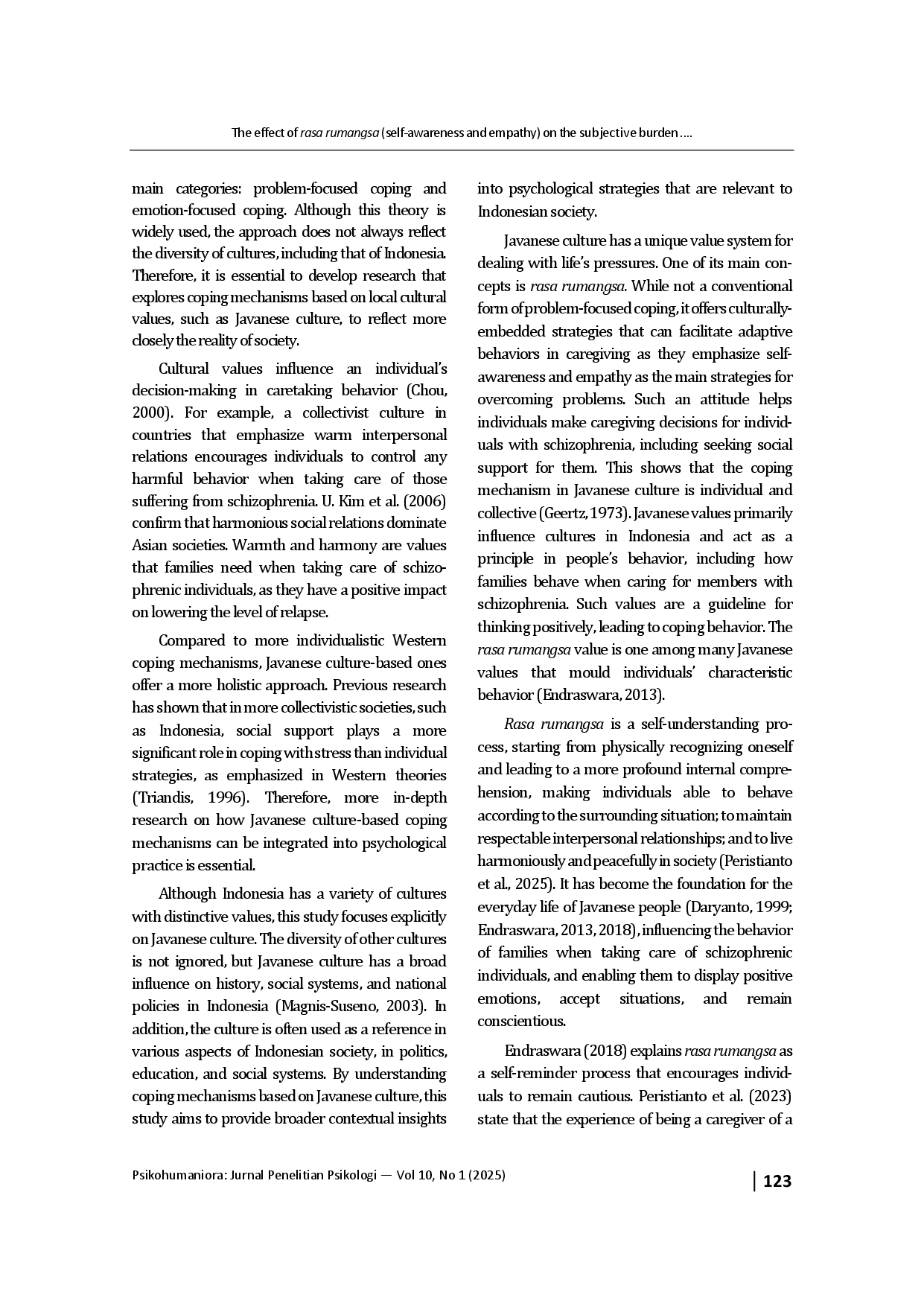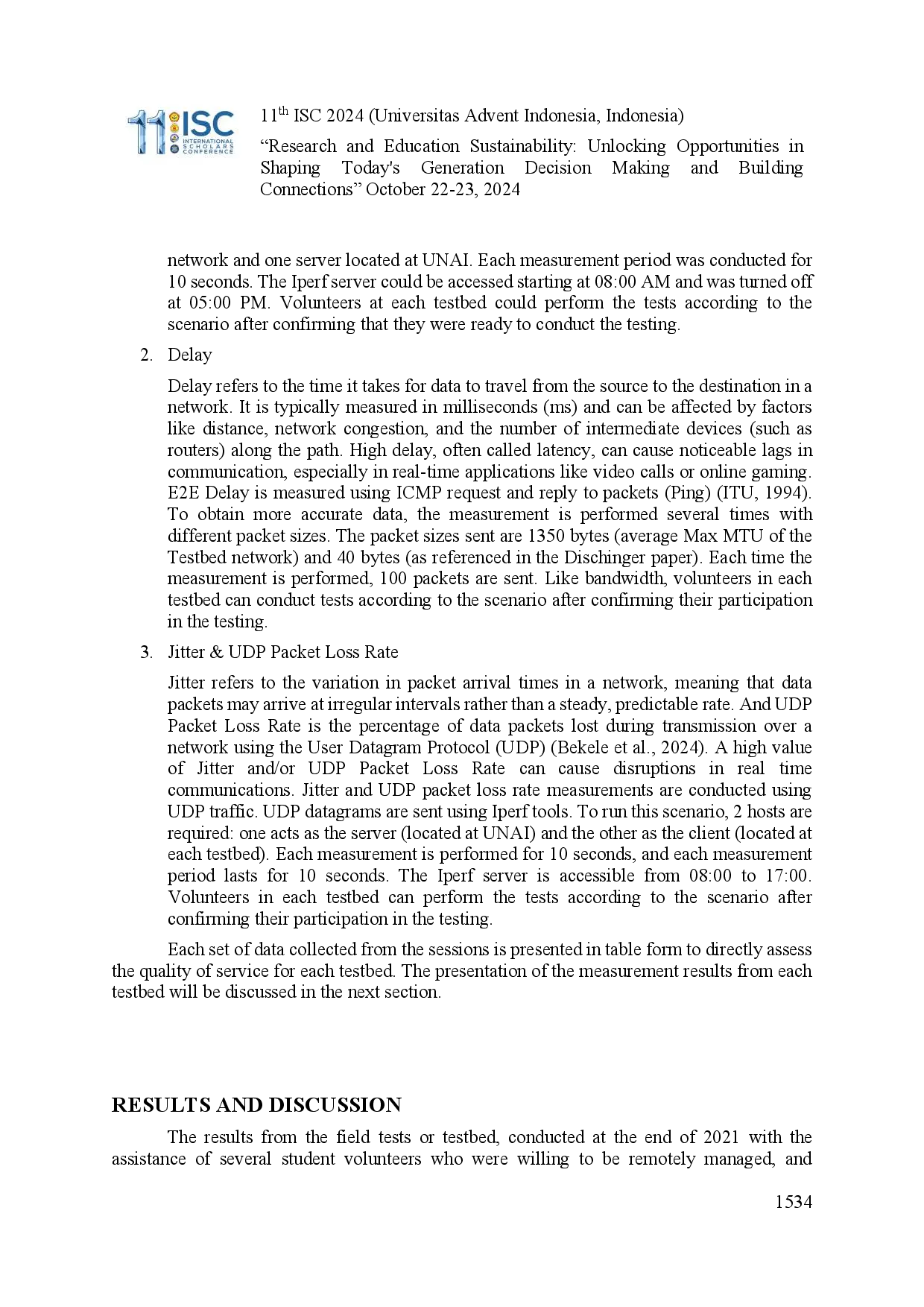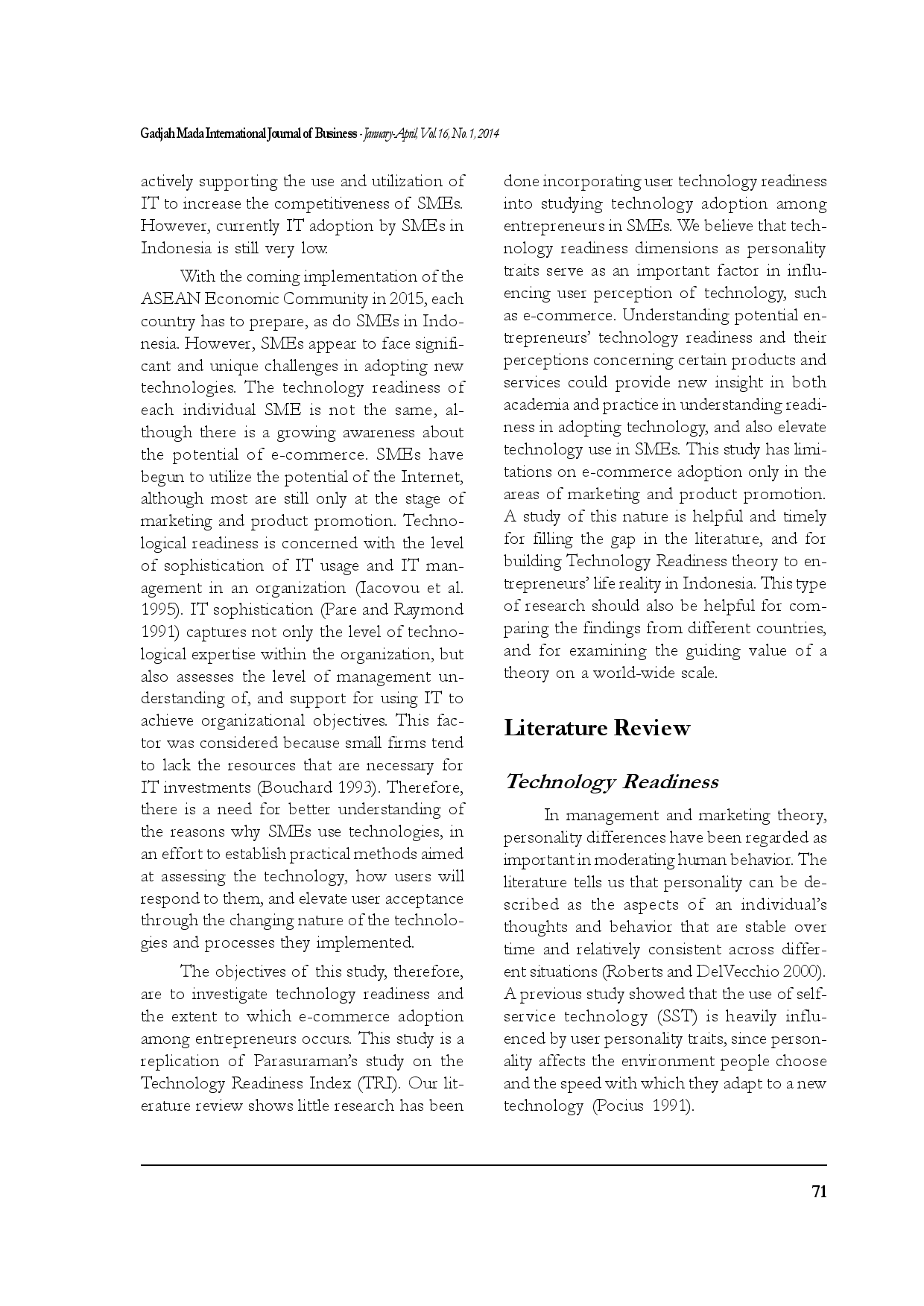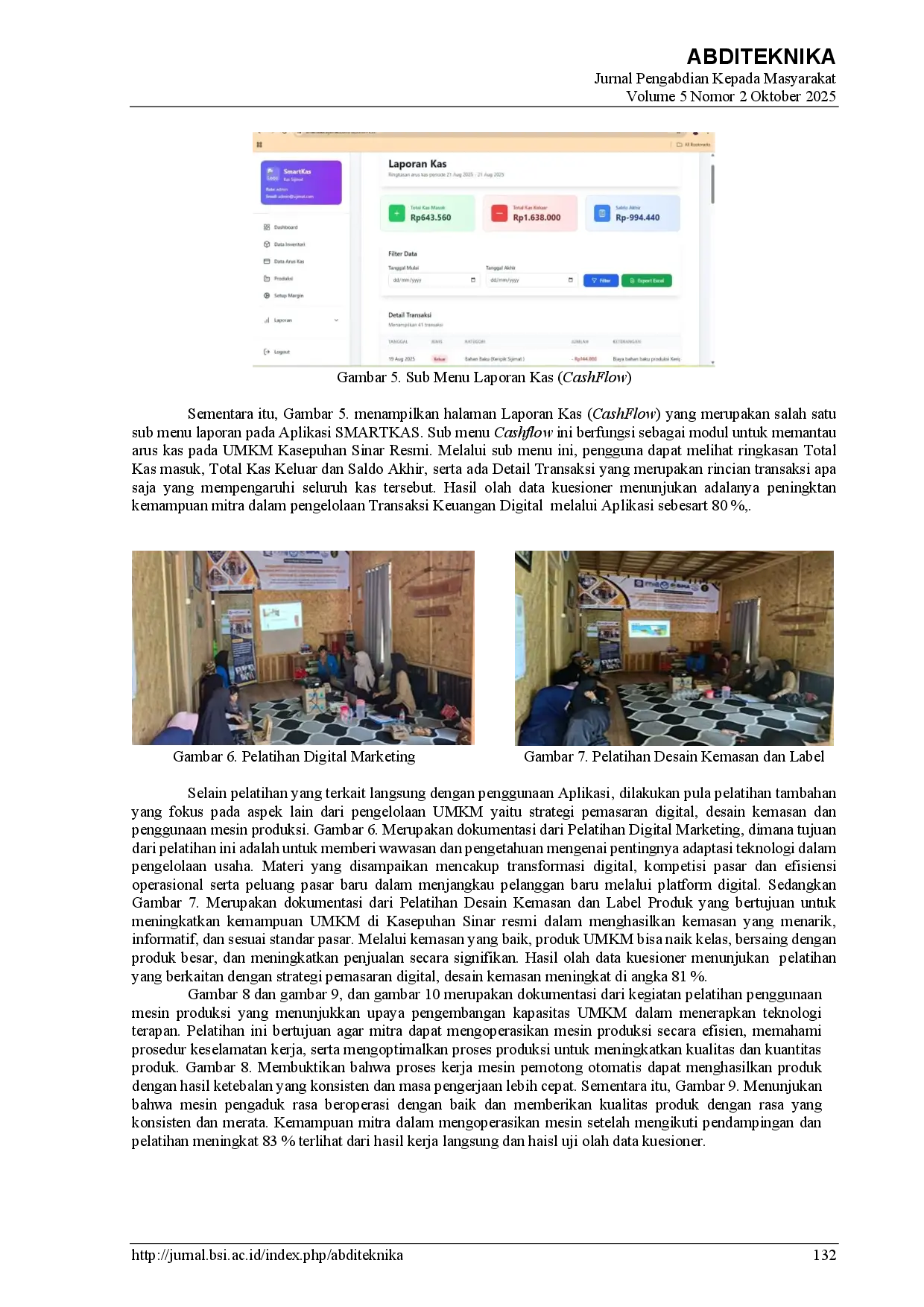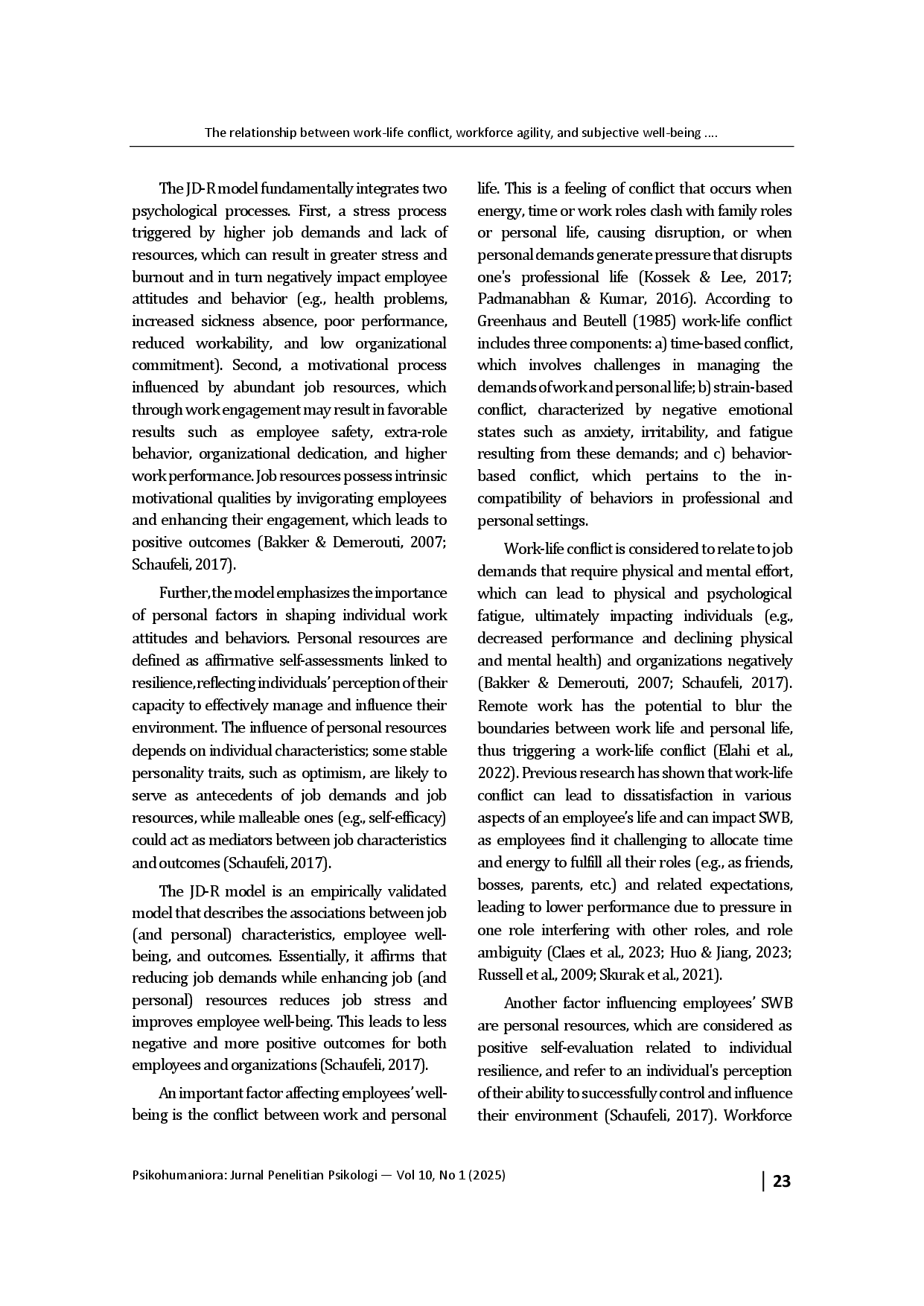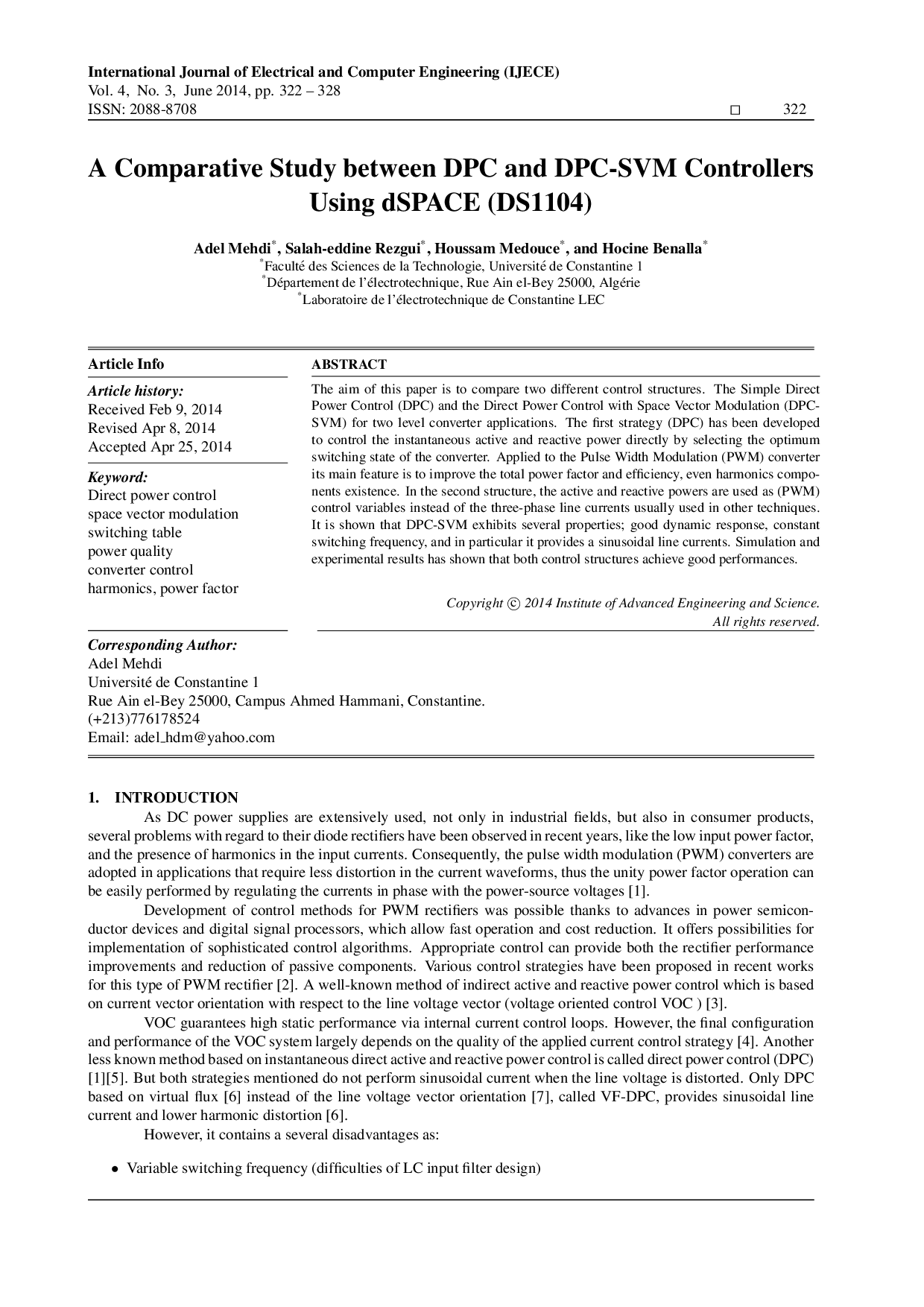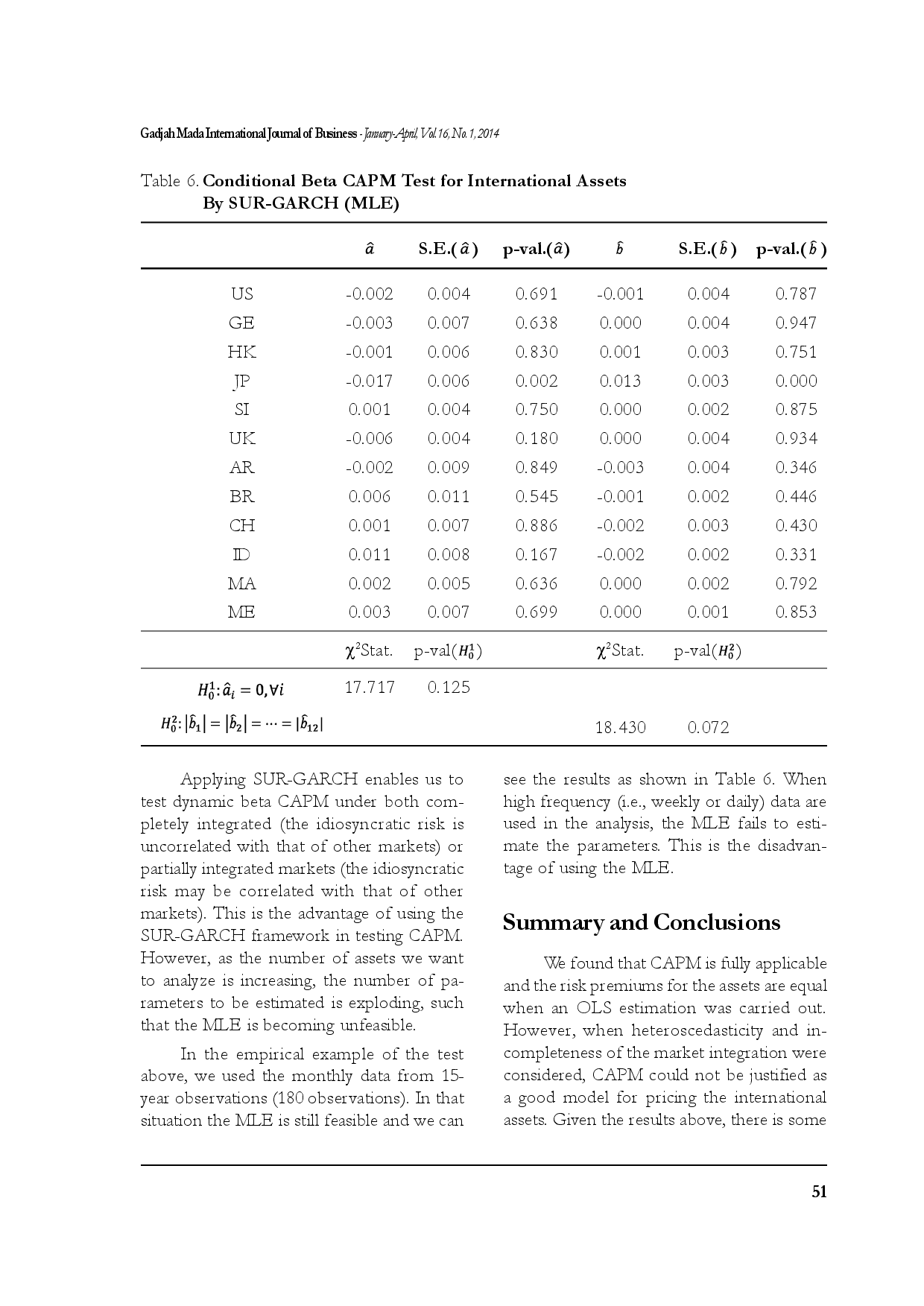UGMUGM
Gadjah Mada International Journal of BusinessGadjah Mada International Journal of BusinessThe informal sector in Indonesia is massive and has become a challenge to the growth of the open market economy. Explanations of the cause of informality have shifted over time from structural dualism to excessive government regulation. This paper argues that merely focusing on the high cost regulation may not reveal the bottom line of informality. Assessment and elaboration of informality need the help of the transaction cost approach that suggests that informality in the economy exists due to the high-transaction-cost institutional framework. To support the argument, this paper provides a preliminary study on the transaction costs borne by firms in the industrial manufacturing sector based on two industrial surveys conducted by BPS-Statistics Indonesia, which are the 2009 survey on medium and large-scale enterprises (MLEs) and the 2010 survey on micro and small-scale enterprises (MSEs). This paper shows that micro and small-scale enterprises with no legality bore the least transaction costs compared to those operating legally, both micro and small-scale, as well as medium and large-scale enterprises. Consequently, regulatory reforms aimed at reducing transaction costs, not merely aimed at reducing official costs and simplifying procedures, are the keys to achieving economic growth while ensuring full participation of the private sector.
The study concludes that the existence of the informal sector in Indonesia can be explained by the high transaction costs faced by entrepreneurs in the manufacturing sector.These costs are influenced by the scale of firms, investment specificity, local institutional frameworks, and the formality status of the businesses.Reducing transaction costs, rather than solely focusing on official costs and procedures, is crucial for fostering economic growth and ensuring the full participation of the private sector.
Penelitian lebih lanjut perlu dilakukan untuk mengidentifikasi secara spesifik komponen biaya transaksi mana yang paling signifikan membebani pelaku usaha di sektor informal, terutama di berbagai jenis industri dengan karakteristik yang berbeda. Hal ini dapat dilakukan dengan studi kasus mendalam pada beberapa sektor industri terpilih, atau dengan survei yang lebih komprehensif yang dirancang untuk mengukur berbagai aspek biaya transaksi, seperti biaya informasi, biaya negosiasi, dan biaya penegakan kontrak. Selain itu, penelitian perlu mengeksplorasi bagaimana peran lembaga informal, seperti norma sosial dan kepercayaan, mempengaruhi biaya transaksi dan keputusan pelaku usaha untuk beroperasi di sektor informal. Studi ini dapat menggunakan metode etnografi atau wawancara mendalam untuk memahami dinamika interaksi antara pelaku usaha, pemerintah, dan masyarakat dalam konteks biaya transaksi. Terakhir, penelitian dapat difokuskan pada pengembangan model kebijakan yang efektif untuk mengurangi biaya transaksi dan mendorong formalisasi sektor informal, dengan mempertimbangkan karakteristik unik dari berbagai jenis usaha dan wilayah geografis di Indonesia. Model ini perlu diuji coba melalui simulasi atau eksperimen kebijakan untuk memastikan efektivitasnya sebelum diterapkan secara luas.
| File size | 295.17 KB |
| Pages | 17 |
| DMCA | ReportReport |
Related /
UNISMUHUNISMUH Penelitian ini menyimpulkan bahwa sistem hukum perlu lebih responsif terhadap kebutuhan korban korupsi, tidak hanya fokus pada penghukuman pelaku, tetapiPenelitian ini menyimpulkan bahwa sistem hukum perlu lebih responsif terhadap kebutuhan korban korupsi, tidak hanya fokus pada penghukuman pelaku, tetapi
UIN WALISONGOUIN WALISONGO Hipotesis diuji menggunakan Jamovi versi 2. 6. 13 dengan modul medmod, mengikuti Model 4 kerangka mediasi sederhana Hayes. Hasilnya menunjukkan bahwa dukunganHipotesis diuji menggunakan Jamovi versi 2. 6. 13 dengan modul medmod, mengikuti Model 4 kerangka mediasi sederhana Hayes. Hasilnya menunjukkan bahwa dukungan
UNAIUNAI Hasil menunjukkan variasi signifikan dalam QoS di berbagai testbed, yang menghadirkan tantangan tertentu bagi rencana eksperimen di masa depan. PenelitianHasil menunjukkan variasi signifikan dalam QoS di berbagai testbed, yang menghadirkan tantangan tertentu bagi rencana eksperimen di masa depan. Penelitian
UGMUGM Pemerintah Indonesia telah menerapkan serangkaian rencana dan kegiatan untuk mempromosikan penggunaan teknologi untuk meningkatkan kinerja Unit Kecil MenengahPemerintah Indonesia telah menerapkan serangkaian rencana dan kegiatan untuk mempromosikan penggunaan teknologi untuk meningkatkan kinerja Unit Kecil Menengah
Useful /
BSIBSI Evaluasi menunjukkan peningkatan pengetahuan dan keterampilan mitra sebesar 84,8% untuk produksi dan 83,6% untuk manajemen. Digitalisasi mutlak diperlukanEvaluasi menunjukkan peningkatan pengetahuan dan keterampilan mitra sebesar 84,8% untuk produksi dan 83,6% untuk manajemen. Digitalisasi mutlak diperlukan
UIN WALISONGOUIN WALISONGO Data dianalisis menggunakan teknik pemodelan persamaan struktural (SEM) dengan program IBM SPSS AMOS. Hasil penelitian menunjukkan bahwa konflik work-lifeData dianalisis menggunakan teknik pemodelan persamaan struktural (SEM) dengan program IBM SPSS AMOS. Hasil penelitian menunjukkan bahwa konflik work-life
IAESCOREIAESCORE Makalah ini menjelaskan dua konsep untuk meningkatkan faktor daya keseluruhan dan efisiensi konverter PWM.metode pertama adalah kontrol daya aktif danMakalah ini menjelaskan dua konsep untuk meningkatkan faktor daya keseluruhan dan efisiensi konverter PWM.metode pertama adalah kontrol daya aktif dan
UGMUGM Namun, ketika kedua faktor tersebut dipertimbangkan, berbagai pasar modal tersebut hanya terintegrasi secara parsial. Pasar modal internasional menunjukkanNamun, ketika kedua faktor tersebut dipertimbangkan, berbagai pasar modal tersebut hanya terintegrasi secara parsial. Pasar modal internasional menunjukkan
